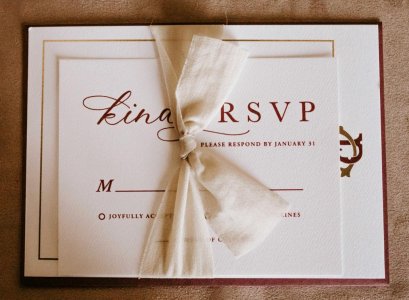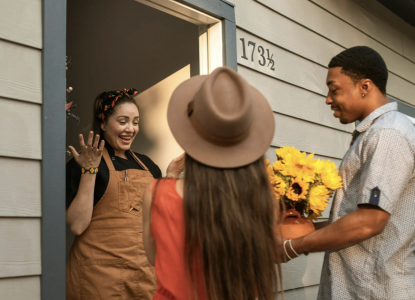
You're at a dinner party when your host's phone buzzes with a Venmo request. "Hope you don't mind," she says cheerfully, "but your share of tonight's meal is $47.50." Meanwhile, the millennial across from you has already started eating before everyone's been served, and the couple next to you is loudly discussing their relationship drama as if they're in their living room instead of a restaurant.
Sound familiar?
If you've found yourself longing for the days when people knew how to behave in polite society, you're not alone.
While manners haven't disappeared entirely, the unspoken rules that once governed social interactions have certainly shifted—and not always for the better.
The great generational divide in manners
The gap between how different generations approach etiquette is more pronounced than ever.
Younger adults are less likely than older ones to say they typically follow most manners asked about, according to a comprehensive 2024 YouGov survey of American dining habits.
The numbers tell the story: while Americans 45 and older are more likely than adults under 45 to say they always or usually put their napkin in their lap while dining (66% vs. 41%), the gap extends far beyond table settings.
"The purpose of etiquette should be to make others feel respected and comfortable, rather than to demonstrate refinement or social status."
A 2023 survey from the Modern Manners Institute found that 78% of Americans believe the purpose of etiquette should be to make others feel respected and comfortable, rather than to demonstrate refinement or social status.
This suggests that while the execution of manners may have changed, most people still value the underlying principle of treating others with consideration.
Also read: Break These 13 Dining Taboos and the World Will Gasp—How Not to Embarrass Yourself Globally!
Dining etiquette: what's holding strong vs. what's slipping
Let's start with the good news: the most universally observed etiquette rule among those asked about is chewing with one's mouth closed—89% of Americans always or usually follow this practice.
So we haven't completely abandoned civilization at the dinner table.
However, other traditional dining courtesies show more generational variation.
The old rule of waiting for everyone to be served before eating? 69% say they wait to eat until everyone at the table has their food—respectable, but far from universal.
And don't get started on proper napkin etiquette, where the age gap is particularly stark.
Also read: Flight attendants' secret greeting strategy unveiled—find out why they never miss saying "hello"
The lost art of proper responses
Remember when "thank you" was met with "you're welcome" instead of "no problem"?
This shift in language reflects a broader change in how we view service and courtesy.
Older generations often interpret "no problem" as suggesting their request might have been burdensome, while younger people see it as casual friendliness.

RSVP: a courtesy in crisis
The failure to RSVP has become so common that many hosts have started building uncertainty into their planning.
They buy extra food, book larger spaces, or resort to tracking down guests individually.
This isn't just about party planning—it's about respect for someone's time, effort, and resources.

The workplace etiquette revolution
Perhaps nowhere have manners changed more dramatically than in professional settings.
A Harvard Business Review study found that 65% of managers reported struggling with appropriate boundaries in remote work environments.
The traditional rules about handshakes, business cards, and meeting protocols have given way to questions about home office backgrounds, appropriate video call attire, and virtual meeting etiquette.
The shift has been accelerated by generational differences in work expectations.
While older generations often value formal acknowledgments and clearly defined professional scripts, younger workers tend to prioritize authenticity and efficiency over traditional politeness structures.

Technology's double-edged impact
Our devices have created entirely new categories of etiquette violations.
The constant ping of notifications during dinner, the person having a loud phone conversation in a quiet coffee shop, or taking photos of others without permission for social media have all become modern manners minefields.
Yet technology has also democratized certain courtesies.
Digital calendars make it easier to be punctual, group texts can facilitate better RSVP habits, and ride-sharing apps have reduced some of the awkwardness around transportation etiquette.

Regional and economic considerations
Let's be honest about something the original etiquette books rarely addressed: many traditional courtesies assume a level of economic privilege.
Bringing a hostess gift, picking up the entire check as the host, or having the "proper" attire for every occasion requires disposable income that not everyone has.
Similarly, what's considered polite varies significantly across American regions and cultural backgrounds.
The warm familiarity appreciated in some Southern communities might feel presumptuous in parts of the Northeast, while directness valued in some urban areas might seem rude in more traditional settings.

Also read: Discover the timeless etiquette for discussing politics!
What's evolving vs. what we've actually lost
Not all changes in etiquette represent decline—some reflect positive social evolution.
The automatic deference to age and authority has been replaced by a more nuanced understanding that respect should be mutual.
Traditional gender-based courtesies like men always picking up the check or standing when women leave the table have given way to more egalitarian approaches.
86% of people 65 and older say too much money is spent on weddings today, suggesting that even expensive social rituals are being reconsidered through a more practical lens.
Also read: The #1 Thanksgiving table faux pas according to etiquette experts—Are you guilty of this?
The courtesy that truly matters
The fundamental principle underlying all good manners remains constant: consideration for others.
Whether that manifests as putting away your phone during dinner, arriving on time, or simply saying "please" and "thank you" doesn't change the core message that we share public spaces and social situations with other people who deserve respect.
Finding common ground across generations
Rather than mourning the loss of specific rules, perhaps it's time to focus on the skills that help us navigate etiquette differences gracefully.
This might mean asking about preferences rather than assuming them, explaining the reasoning behind traditional courtesies to younger people, or being open to new ways of showing respect and consideration.
Also read: The secret to regifting without anyone knowing – Etiquette experts reveal!
The future of American manners
As our society becomes increasingly diverse and technology continues to reshape how we interact, the future of etiquette will likely focus less on memorizing specific rules and more on developing the emotional intelligence to treat others with respect across different contexts and cultures.
This doesn't mean abandoning all traditional courtesies—many of them, like arriving on time and expressing gratitude, remain relevant because they demonstrate basic consideration.
But it does mean being willing to evolve our understanding of what politeness looks like in 2025.
The next time you find yourself frustrated by someone's apparent lack of manners, consider whether they might simply be operating from a different set of social expectations.
And if you're the one being corrected on etiquette, remember that most people are trying to help you navigate social situations more successfully, not criticize your character.
Read next:
- Is Steve Harvey in trouble? Fans are divided over his behavior with his wife!
- 17 surprising airline rules from the 1960s that would shock travelers today
- This Simple Mistake Could Be Killing Your Wine Experience – Learn the Correct Way to Hold a Glass!
What etiquette rules do you miss most from the "good old days"? Are there any modern courtesies you think we should all adopt? Share your thoughts on how we can bridge the generational etiquette gap while keeping the spirit of good manners alive.
Primary Source
https://www.cheapism.com/forgotten-etiquette-rules/
Minding their manners: Do Americans follow traditional dining etiquette? | YouGov
Cited text: Younger adults are less likely than older ones to say they typically follow most manners asked about.
Excerpt: Younger adults are less likely than older ones to say they typically follow most manners asked about
https://today.yougov.com/society/ar...americans-follow-traditional-dining-etiquette
Minding their manners: Do Americans follow traditional dining etiquette? | YouGov
Cited text: Americans 45 and older are more likely than adults under 45 to say they always or usually put their napkin in their lap while dining (66% vs. 41%).
Excerpt: Americans 45 and older are more likely than adults under 45 to say they always or usually put their napkin in their lap while dining (66% vs.
https://today.yougov.com/society/ar...americans-follow-traditional-dining-etiquette
How modern etiquette has evolved beyond outdated traditions
Cited text: A 2023 survey from the Modern Manners Institute found that 78% of Americans believe the purpose of etiquette should be to make others feel respected a...
Excerpt: A 2023 survey from the Modern Manners Institute found that 78% of Americans believe the purpose of etiquette should be to make others feel respected and comfortable, rather than to demonstrate refinement or social status
https://rollingout.com/2025/04/05/how-modern-etiquette-has-evolved/
Minding their manners: Do Americans follow traditional dining etiquette? | YouGov
Cited text: The most universally observed etiquette rule among those asked about is chewing with one's mouth closed: 89% of Americans always or usually follo...
Excerpt: The most universally observed etiquette rule among those asked about is chewing with one's mouth closed: 89% of Americans always or usually follow this practice
https://today.yougov.com/society/ar...americans-follow-traditional-dining-etiquette
Minding their manners: Do Americans follow traditional dining etiquette? | YouGov
Cited text: The most universally observed etiquette rule among those asked about is chewing with one's mouth closed: 89% of Americans always or usually follow thi...
Excerpt: The most universally observed etiquette rule among those asked about is chewing with one's mouth closed: 89% of Americans always or usually follow this practice
https://today.yougov.com/society/ar...americans-follow-traditional-dining-etiquette
Minding their manners: Do Americans follow traditional dining etiquette? | YouGov
Cited text: Three-quarters (73%) of American adults say they ask for items to be passed instead of reaching across the table, and 69% say they wait to eat until e...
Excerpt: 69% say they wait to eat until everyone at the table has their food
https://today.yougov.com/society/ar...americans-follow-traditional-dining-etiquette
How modern etiquette has evolved beyond outdated traditions
Cited text: A Harvard Business Review study found that 65% of managers reported struggling with appropriate boundaries in remote work environments.
Excerpt: A Harvard Business Review study found that 65% of managers reported struggling with appropriate boundaries in remote work environments
https://rollingout.com/2025/04/05/how-modern-etiquette-has-evolved/
I do or don't: Surveying Americans on wedding etiquette | YouGov
Cited text: Older Americans are especially likely to think couples getting married should reduce how much they spend: 86% of people 65 and older say too much mone...
Excerpt: 86% of people 65 and older say too much money is spent on weddings today
https://today.yougov.com/society/articles/47928-surveying-americans-on-wedding-etiquette






